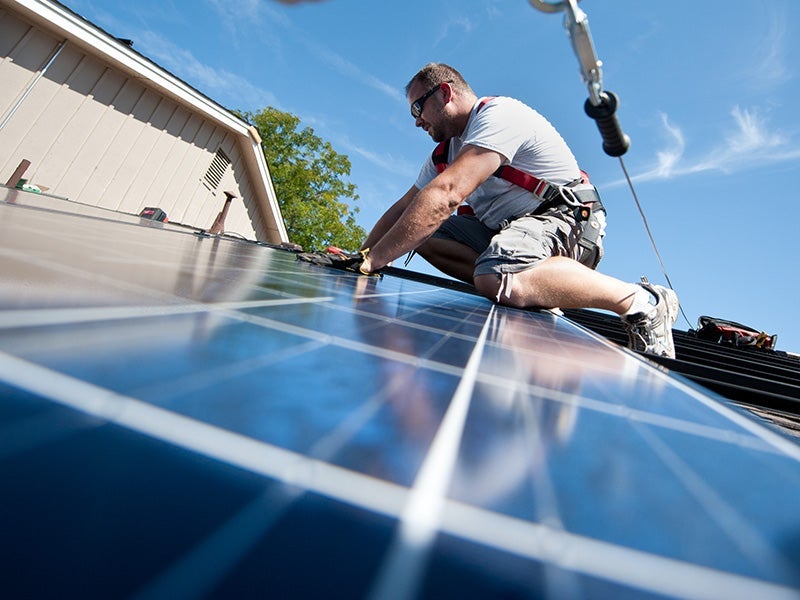Colorado Is at a Crossroads in Its Clean Energy Transition
As Colorado shutters its coal plants, the decisions we make now will determine how quickly we electrify our cars and homes, and whether all Coloradans have equitable access to clean energy
Coal’s days in Colorado are now unequivocally numbered. In August, the Colorado Public Utilities Commission set retirement deadlines for Xcel Energy’s remaining coal-fired power plants. This news follows several other recent retirement announcements for coal plants ranging from Fort Collins to Colorado Springs to Craig. The bottom line is that by the end of 2030, there will be no coal plants left operating in Colorado.
The shuttering of Colorado’s coal plants represents a significant milestone in our state’s move to clean energy. In 2020, coal accounted for approximately 36% of Colorado’s electricity generation. Eliminating this coal-fired generation over the coming decade will result in cleaner air for all Coloradans to breathe and significantly less greenhouse gas emissions.
This milestone warrants recognition, but turning the page on Colorado’s coal plants is not the end of Colorado’s clean energy story. Two overarching issues will likely drive the next decade’s headlines and work.
First, Colorado must make greater and quicker progress on reducing climate pollution beyond the electric sector. In 2020, the transportation sector overtook the electric sector as Colorado’s largest source of greenhouse gas emissions. Yet the State’s efforts to reduce emissions from the millions of cars and trucks on Colorado’s roads have been mixed to date. Last year, the Colorado Department of Transportation adopted first-of-its-kind transportation planning rules that should help make our state’s transportation sector cleaner and more sustainable and equitable. However, the Colorado Air Quality Control Commission has abandoned and delayed several rules over the past year that would reduce pollution from cars and trucks.
Colorado is also in the early stages of decarbonizing the buildings sector. The gas we burn in our homes, offices, and businesses is a major source of greenhouse gas emissions and can result in unsafe indoor air quality. As solar and wind increasingly power our electric grid, we must electrify all the appliances in our buildings that burn gas—such as furnaces, stoves, and water heaters. Unfortunately, the fossil fuel industry is resorting to well-worn tactics to delay this next phase of the clean energy transition. Xcel Energy and other fossil fuel interests have launched a pro-gas front group called “Coloradans for Energy Access.” And in an important test case currently before the Colorado Public Utilities Commission, Xcel has fought hard for a $32 million project to expand its gas system in Denver, Lakewood, and Edgewater, rather than implement energy efficiency and beneficial electrification measures to reduce customers’ demand for gas. This gas expansion project and other similar projects risk leaving customers on the hook to pay millions of dollars to expand the gas system, although we know today that the gas system will deliver far less fuel and energy in the future.
Second, Colorado must ensure that the next phase of the clean energy transition is more equitable than in the past. It is imperative that low-income customers and disproportionately impacted communities have greater access to clean energy technologies, and that they are not left behind in the clean energy transition. Rooftop solar, community solar, energy efficiency, and other clean energy technologies decrease customer bills and can help reduce the energy burden customers face by rising energy costs. But for too long, low-income customers and disproportionately impacted communities have not received their fair share of these benefits—and instead are forced to spend a greater share of their incomes on energy and transportation costs while suffering from greater exposure to pollution. Colorado must develop robust and well-designed clean energy programs for low-income customers, which reflect the needs and desires of these customers and disproportionately impacted communities. Fortunately, numerous environmental justice organizations that represent a range of communities of color in Colorado have begun intervening in Colorado Public Utilities Commission proceedings and demanding more equitable access to rooftop solar, community solar, electric vehicle, and battery storage programs. And in an encouraging sign of progress, many of these groups recently struck a deal with Xcel that will result in greater and better-designed solar and battery storage programs, along with more robust education and outreach from Xcel to disproportionately impacted communities.
As Colorado shutters its coal plants, the state is at an important crossroads as it enters the next phase of the clean energy transition. The decisions we make now will determine how quickly we electrify our cars and homes, and whether all Coloradans have equitable access to clean energy.
This piece originally appeared as an op-ed in the Grand Junction Sentinel.
Michael Hiatt is deputy managing attorney in Earthjustice's Rocky Mountain Office.
Earthjustice’s Rocky Mountain office protects the region’s iconic public lands, wildlife species, and precious water resources; defends Tribes and disparately impacted communities fighting to live in a healthy environment; and works to accelerate the region’s transition to 100% clean energy.

